Year in Reading, Part I
from friends and supporters of book(ish)

I’m done with Top Tens, Best Of’s, and Editor’s Choice. They’re boring, and the fact that they all come out in November grates on me. I’m a firm believer that your Year in Reading ends on December 31st. So, I know, I know, I’m a few days early, but we’re close enough, and we’re beyond the major-holiday-purchasing frenzy. For the next few weeks—maybe two, maybe three— I’ll be sharing some reflections from friends and supporters of book(ish). The prompt I sent around was open-ended. Write about your year with books—could be a list, a diary-like entry, or wacky poetry. And the best part? You won’t find any dubious claims of objectivity here, nothing beholden to internet buzz nor current publicity cycles. Instead, you’ll get new books, old books, weird books, and rom coms. You’ll get slices of life, suggestions of hardship or stress, some sly comedy, and some closer-to-the-bone missives that exhibit the vagaries of the mind. Writing is writing the mind, as Ginsberg says—actually, I think it was a Buddhist monk that Ginsberg ripped off—and that’s exactly what these are: scraps of the mind. I’m so proud to call these people my friends. [Insert cheesy quote about how true riches equals loads of friends.] I’m profoundly grateful to all who contributed here. I’ve linked to their work, writing, and, when applicable, their very own Substacks. There are buckets of books to discover here, of course, but even if you don’t feel like scratching them down for your TBR list, there’s much to enjoy in the prose itself. I’ve done my best to link each book to Bookshop, but please, as always, support your local, independent booksellers if you can. And then, please, for the love of god, ask your booksellers what they’re excited about. They know everything. I’m grateful you’re here. I hope you enjoy these entries as much as I did. - Josh
+++
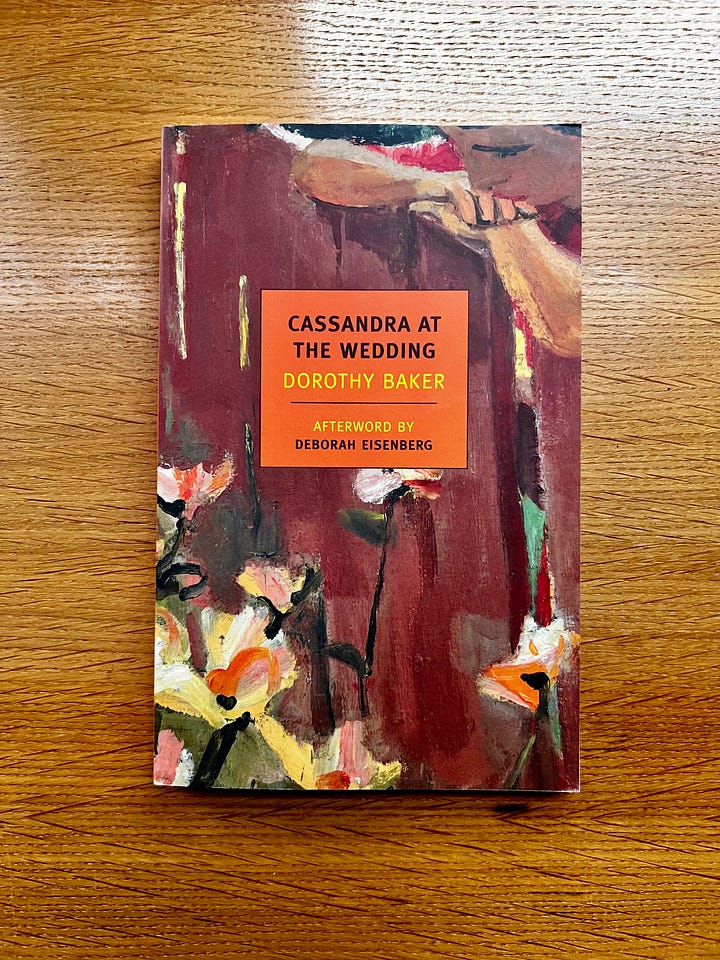
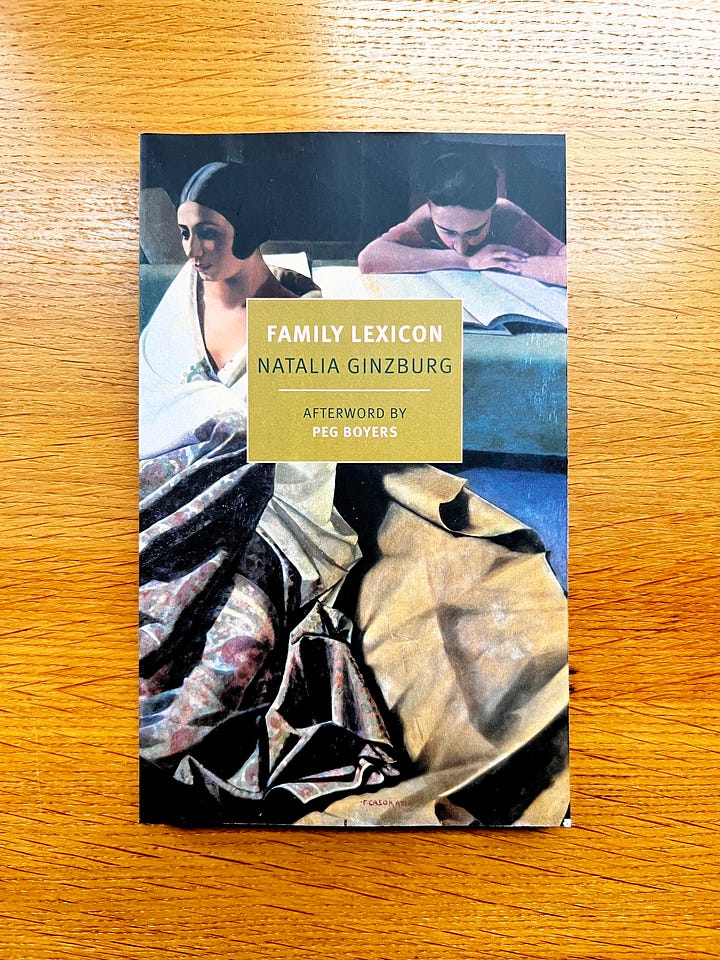
It’s been a year of big change. Loss, and growth, and unrelenting transformation. Emergent? Divergent? I can’t say if the books I read helped me process the change, or made it more painful and terrifying and beautiful, or if the books themselves were part of the change. The five I loved most were probably all of these, catalysts to the me I’m becoming. I recommend them without hesitation.
Cassandra at the Wedding by Dorothy Baker. My favorite novel read in 2023. A very sister-ish book — also absolutely universal, inspiring and devastating. Let it help you become.
How To Behave In A Crowd by Camille Bordas. Gasping with laughter. An unadulterated pleasure, every page.
Family Lexicon by Natalia Ginzburg. Family is complicated (see also the two books above) and especially with fascism. Your heart sings in this one.
The Red-Headed Pilgrim by Kevin Maloney. Extremely funny, true, sad and sweet. For the elder millennial / gen x cusp dirtbag in all of us.
Three Summers by Margarita Liberaki. Another sister book. Highest rate of BSPP (beautiful sentences per page) of any novel in 2023 or recent memory. I underlined like a fiend.
Others I loved:Songs of Enheduana tr. by Sophus Helle
The Epic of Gilgamesh — various versions
Antigonick by Anne Carson
The entire issue of Poetry magazine published in the month of my birth — less as literature and more as a form of secular astrology
When We Cease To Understand The World by Benjamin Labatut
Don Quixote by Cervantes, tr. Edith Grossman (RIP)
The Alienist and other stories by Machado de Assis
Currently:Plant Dreaming Deep by May Sarton
The Metamorphoses by Ovid
Here’s to 2024 and the next self and the next stack of books. I hope some of these might catalyze your own growth, change, grief, joy, and/or radical evolution.
—Seth Bockley, Director & Writer (Minneapolis/Chicago)
+++
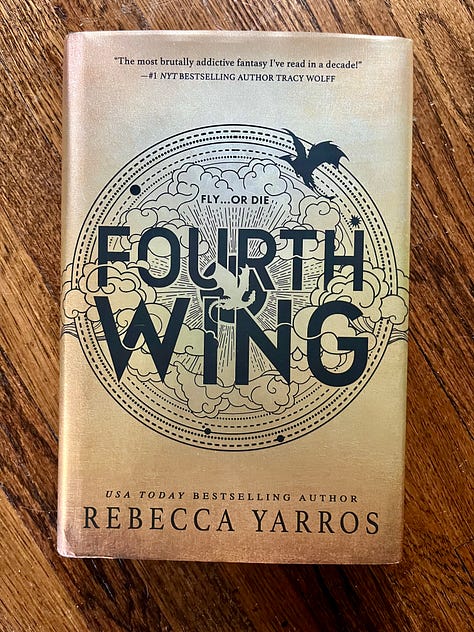
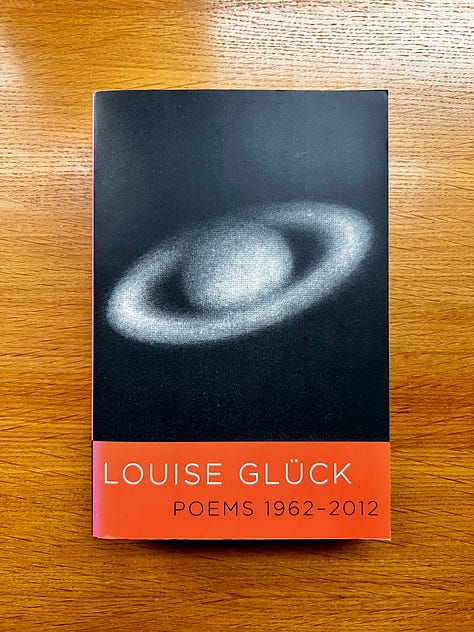
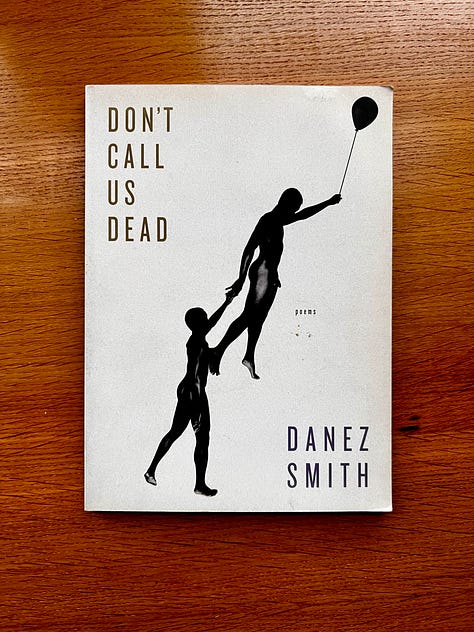
2023 was the year of poetry and fantasy.
I decided to read one poem a day, and by the end of the year, that culminated in twelve collections. I re-read favorites like Mary Oliver, Ada Limón, and Louise Glück, and was introduced to new favorites like Danez Smith, Saeed Jones, and Lena Khalaf Tuffaha. Without intentionally seeking any of this out, it ended up being a diverse set: seven of the ten authors were people of color, at least three were queer, and half were women. I had always thought of poetry as an Old White Male genre, filled with big words and grand sentiments. What I found instead were people from around the world who wrote about sex, war, octopi, and divine femininity— in Spanish, in AAVE, and in Dakota. My world view expanded one poem at a time.
If poetry taught me awe and the power of observation, fantasy taught me about unbridled fun.I finally “allowed” myself to succumb to the genre this year, and I became so enamored of it that I shed all my pretense and snobbery, basking in the fast pacing, gripping storylines, and magical worlds. As far as new fantasy goes, this was definitely the year of Rebecca Yarros (is there anyone who hasn’t at least heard of Fourth Wing?), but I also went back and filled in some gaps with more Sarah J. Maas, Jennifer L. Armentrout, and Patrick Rothfuss. I now look at an 800-page book with anticipation instead of dread, and because of fantasy, I read so many books this year. I have a renewed love! These books made me feel twelve years old again, so anxious to continue reading that I would carry a flashlight with me for dark car rides and late nights. I can’t wait to load up my shelves with more.
—Lindsey Wright, author of Currents (Minneapolis, MN)
+++
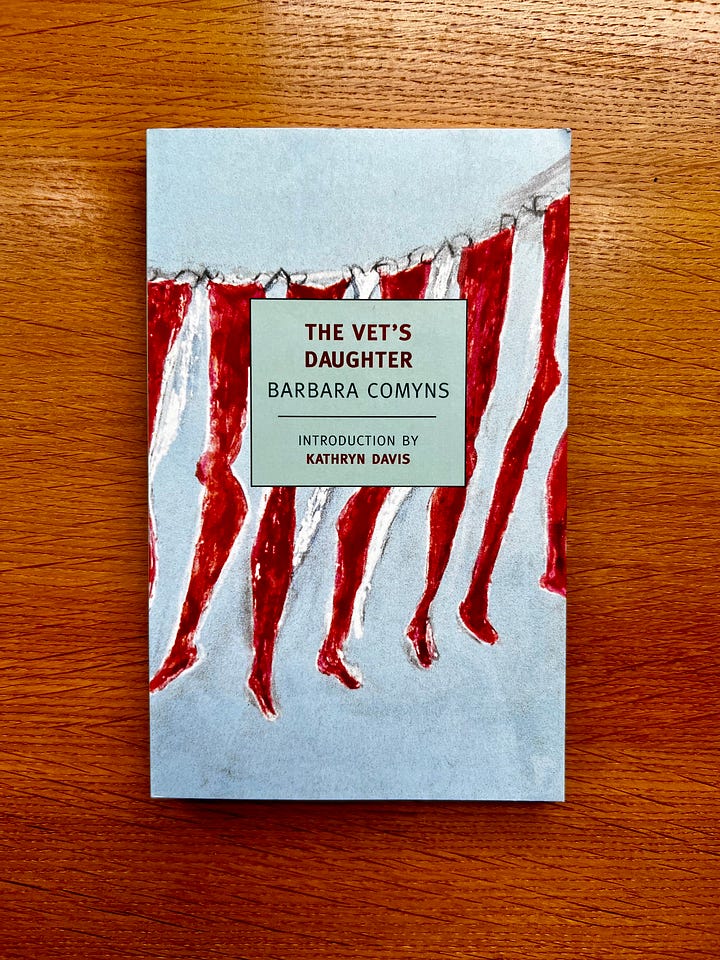
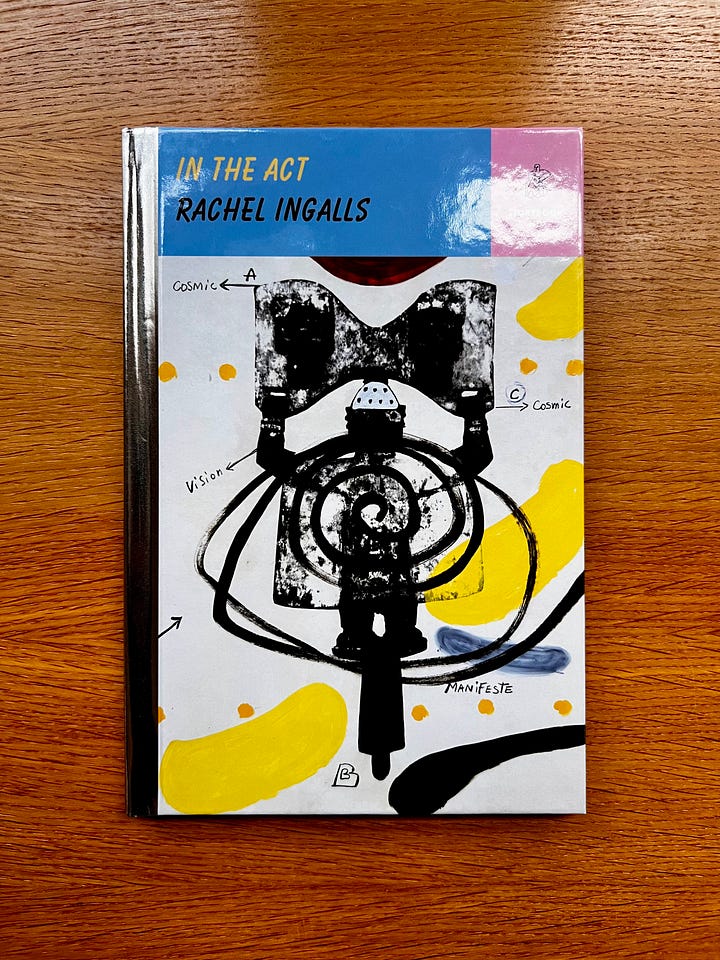
Because I have spent a nauseating seven-ish years in the book business, I am diligent about not letting work define my reading list. I try to read older stuff in between the frontlist, and was thrilled to find The Vet’s Daughter by Barbara Comyns at my neighborhood used bookstore. Comyns’ Our Spoons Came from Woolworths is one of my favorites, and this was a similarly precise portrait of young feminine despair, though with a thrillingly occultish, ecstatic edge.
It paired well with Natalie Ginzburg’s The Road to the City, which follows a young woman with few choices but many ambitions, published first in 1942 and republished as part of New Direction’s Storybook novella series. I have that series to thank for the genius In the Act by Rachel Ingalls, a giddy exploration of sex robots and mismatched desire. I’m compelled by these stories about women who aren’t particularly special, clever or charming—the type of woman we are told to avoid becoming or associating with.
Another mid-century highlight for me was Neighbors, forthcoming from Grove next year. Diane Oliver died in 1966 at 22 having only published a few stories in her too-brief lifetime—this is the first time her uncanny, Black southern gothic has been collected.
I had been putting off André Alexis’s Fifteen Dogs because although he is my favorite novelist, I just plain don’t like dogs. But like all of Alexis’s works, Fifteen Dogs is brilliant: Alexis creates a world of speaking dogs but retains their fundamental animalness, their (repulsive-to-me) doggishness, with a transcendent precision. It reminded me a little of Kappa by Ryunosuke Akutagawa, another novella I read this year, in how vividly it invents a culture for its animal cast and makes you rethink what “human nature” means.
I rounded out the last two months by listening to five Princess Diaries audiobooks and reading about ten different contemporary romances because I like to end the year with a blow-out and there’s only so much twentieth-century gloom a girl can take. I am extremely fascinated by the romance genre although I have yet to find one I really enjoy. So, heads-up, I’m taking recs for 2024.
— Celia Mattison, writer & critic, author of Deeper Into Movies. (Brooklyn, NY)
+++
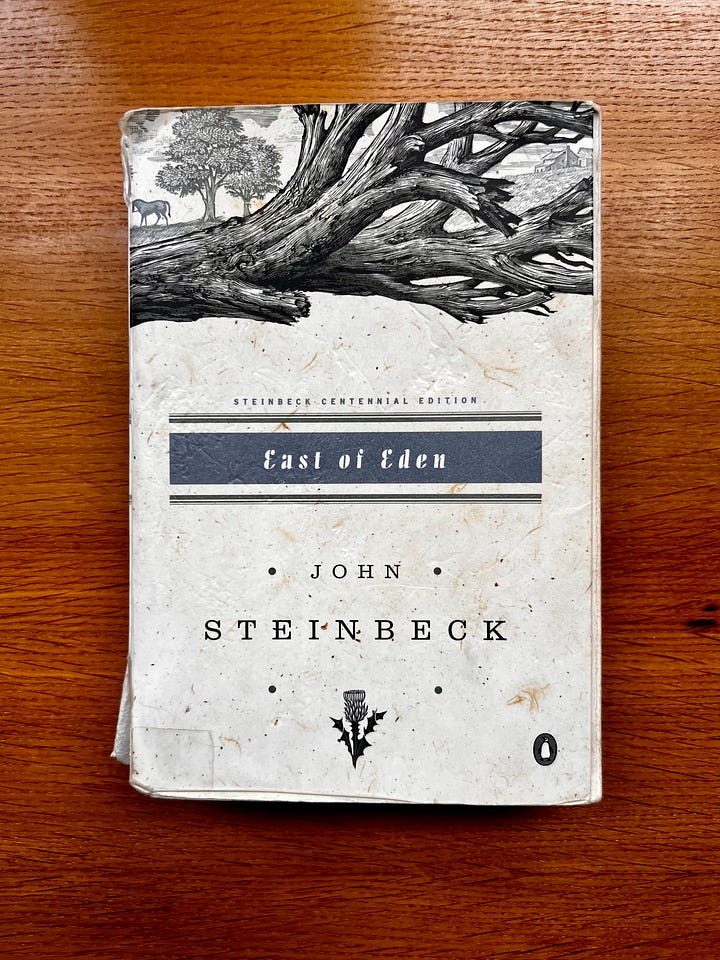
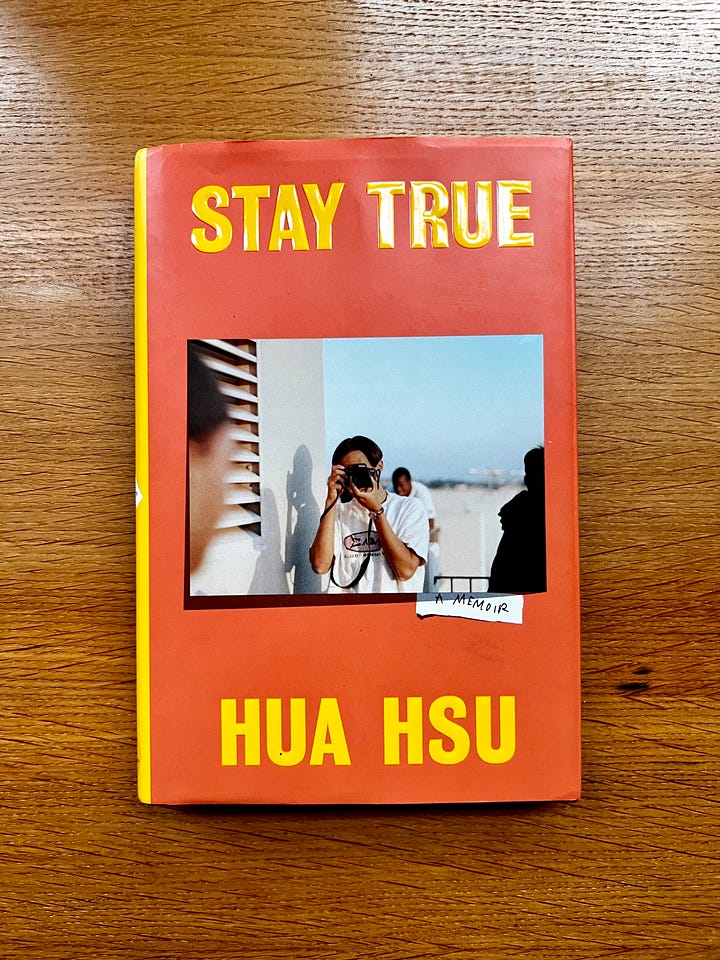
I am indebted to the dear friend that encouraged me to finally read East of Eden, and even more so for the gentle, warning like instruction, “Allow yourself to sit with your shame.” At the onset the only shame I felt was in the surety that I was the only reader in the universe to have not read it. That weight I still feel to the degree that I hesitate to share this high-school-English-reading-list-type book in a publication I respect so highly. Regardless, my gut wants me to be honest, so honest I will be. It was top two for me; its effect still felt. Perhaps of greater interest is how in the wake of its destruction was left a perfect place for my book of the year to step in and build me back up.
If East of Eden deals with tortuous thoughts like—sins of the father/mother, identity, predetermination, free will, and much more—The House in the Cerulean Sea articulates the transformative power of love, friendship and choice. Perhaps the most salve-like truth found in HITCS is the undeniable and far reaching potency of chosen family.
I read many wonderful books this year. No two that continue to occupy my mind and influence the way I approach my current day to day as these two did. For posterity, and to prove to myself I can and did read books other than classics and fantasy, here is a short list of additional books I found impactful:
Judas Goat by Gabrielle Bates
Stay True by Hua Hsu (shameless plug)
In An Unspoken Voice: How the Body Releases Trauma and Restores Goodness by Peter Levine
A Psalm for the Wild-Built by Becky Chambers
A Heart That Works by Rob Delaney
—Andrew Milstead, proprietor of Milstead and Co. (Seattle, WA)
+++
“Linguaphile” is the English word for a lover of language and words. My own love of languages started as a young child, raised bilingual, with English as my first language and Afrikaans as my second. Before 2003, the language policy in South Africa allowed only for these two official languages. Post-apartheid South Africa now recognises the official languages of Xhosa; Ndebele; Zulu; Tswana; Swati; Sotho; Southern Sotho; Venda and Tsonga. As well as the richness of African languages, I grew up with friends who spoke Portuguese, Italian and Greek with their first-generation immigrant parents.
This love of languages and curiosity of cultures propelled my move to London. I joined global firms where I knew my colleagues would come from all over the world, chose boyfriends and friends based (selfishly) on their (foreign to me) accents, and started travelling to Europe as soon as I arrived.
So, when Josh kindly asked me to write about my favourite reads of 2023, I knew instantly which two I’d be sharing. My book choices this year have been incredibly influenced by my new neighbourhood independent bookshop, The Feminist Bookshop. Their translated works section is my favourite and every time I visit I leave with a beautiful new read.
Drive Your Plow Over the Bones of the Dead by Olga Tokarczuk (translated from Polish by Antonia Lloyd-Jones)
This book had everything for me - an eccentric woman in her sixties living in a remote Polish village, her love of dogs, tarot and astrology, her fondness of William Blake poetry (1) and to top it all off? She is hilarious. The book caused a genuine political uproar in Tokarczuk's native Poland, which fills me with quiet feminist joy.
Marzahn, Mon Amour by Katja Oskamp (translated from German by Jo Heinrich)
This was my feel-good book in 2023 (2), and I loved it so much I read it twice. In this part memoir, part reportage, Oskamp abandons her failing writing career to retrain as a chiropodist in the suburb of Marzahn, once the GDR's largest prefabricated housing estate, on the outskirts of Berlin. Each chapter shares a tender and humorous story of her clients and co-workers, and by the end of the book you feel as if you’re a part of this special community.
—Nicole Costello, author of This Book Changed My Life; proprietor of Costello & Friends (London, UK)
+++
See you next week for more Year in Reading entries. Thanks, as always, for reading.


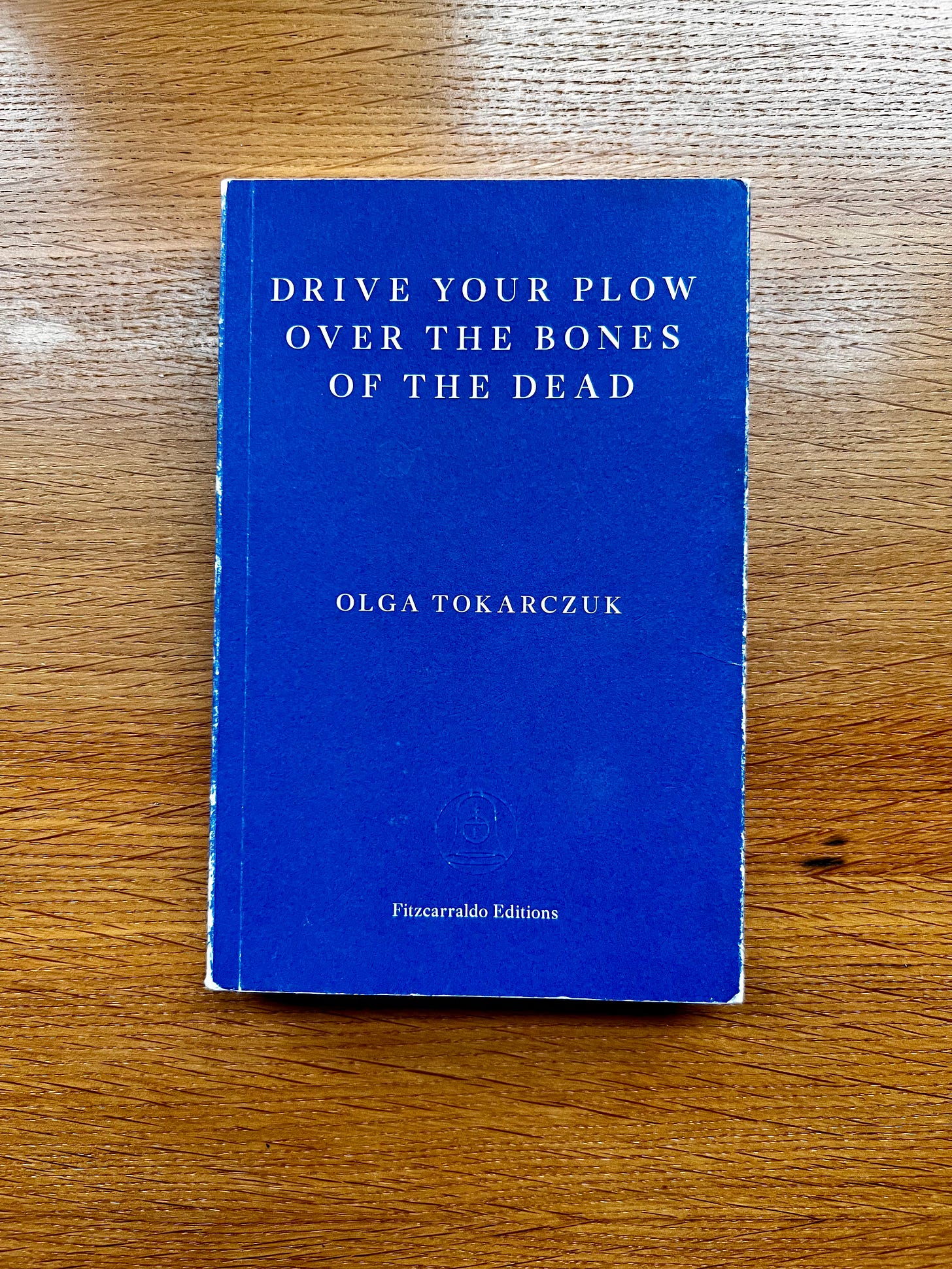
Loved loved participating in this THANK YOU Josh ❤️🫶🏼